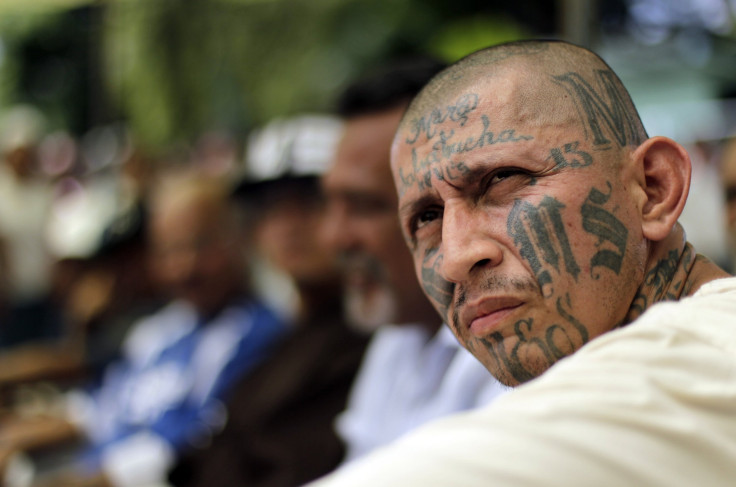MS-13: How A Street Gang From LA Went International

What started out as a Los Angeles street gang that formed within the El Salvadorian immigrant community has expanded into an international criminal enterprise, and now it’s getting the attention it deserves.
On Thursday, the U.S. Dept. of the Treasury designated the gang Mara Salvatrucha, commonly referred to as MS-13, as a “transnational criminal organization,” allowing the department to seize the assets of gang members and prevent financial institutions from conducting any transactions for them.
“MS-13 is an extremely violent and dangerous gang responsible for a multitude of crimes that directly threaten the welfare and security of U.S. citizens, as well as countries throughout Central America,” Treasury Under Secretary for Terrorism and Financial Intelligence David S. Cohen said in a statement.
“This action positions us to target the associates and financial networks supporting MS-13, and it gives law enforcement an additional tool in its efforts to disrupt MS-13’s activities.”
According to the Treasury, MS-13 has roughly 30,000 members engaged in a range of criminal activity -- including murder, racketeering, drug- and sex-trafficking -- and operating in other countries throughout ... North and Central America, including Mexico, Canada, El Salvador, Guatemala and Honduras.
In the U.S. alone, there are an estimated 8,000 members operating in over 40 states and the District of Columbia.
The former street gang has now joined the ranks of high level criminal organizations like Mexico’s Zetas and Sinaloa drug cartels and Japan’s Yakuza crime syndicate.
The gang is directed by its leadership in El Salvador, where money from its operations in the U.S. and other nations is funneled back.
MS-13 had initially formed in Los Angeles in the 1980s during a wave of illegal immigration and asylum-seeking from El Salvador as people fled the civil war there. Many gang members were deported back to their home country after the conflict ended in 1992, which ultimately had the unintended consequence of expanding the reach of its operations.
Since 2006, over 4,000 MS-13 members have been detained by the Dept. of Homeland Security’s Immigration and Customs Enforcement’s investigation division, which has cracked down on racketeering operations in Washington, D.C., Virginia, New York, San Francisco, Houston and Atlanta.
“History has proven that we can successfully take down organized crime groups when we combine sophisticated investigative techniques with tough street level enforcement, cutting off cash flows, contraband and collaborators to ensure they no longer find safe haven in our communities," ICE Director John Morton said in a statement.
© Copyright IBTimes 2024. All rights reserved.





















